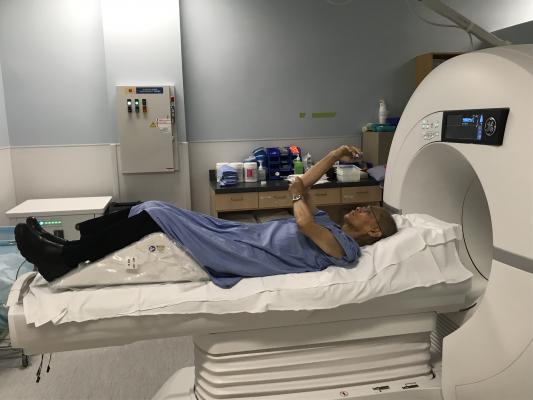
June 20, 2019 — A new type of care for cardiac patients at St. Paul’s Hospital, Vancouver, has the potential to reduce heart imaging wait times, ease emergency department congestion and lower the number of unnecessary hospital admissions. At the center of the new approach is a GE Healthcare Cardiographe dedicated cardiac computed tomography (CT) scanner, the first of its kind in Canada. The machine will be used as a component of a stand-alone Rapid Access Chest Pain Clinic that will provide earlier prevention and life-saving treatment to cardiac patients.
“The Rapid Access Chest Pain Clinic has the potential to change the course of this disease by offering prevention and early intervention in a personalized fashion,” said Jonathon Leipsic, M.D., chair of Providence Health Care’s (PHC) Department of Radiology. It is partnering with St. Paul’s Cardiology Department in this initiative with funding from St. Paul’s Foundation.
The clinic would open in 2020 and will receive referrals from St. Paul’s Emergency Department, the City Centre Urgent Primary Care Clinic (UPCC) in Vancouver’s West End and from general practitioners. It will be staffed with specially trained cardiac CT technicians and nurses.
The dedicated cardiac CT is currently at St. Paul’s where scans are performed on about 25 patients a day, freeing up time on the hospital’s other general purpose CT scanners for other patients.
The cardiac scanner is smaller, easier to use and lighter than full-body scanners because it diagnoses only the heart. It also offers:
-
Sharper, crisper images that can provide greater direction on the next step of care; and
-
Similar or lower radiation doses than general-purpose scanners.
Patients who would be diagnosed with the cardiac scanner will be stable and have symptoms that include chest pain, shortness of breath and fatigue. Patients with valve disease will also benefit.
The concept of a rapid access chest pain clinic, supported by cardiac CT scanning, was inspired by the United Kingdom, where this model has proven highly effective. It is allowed for a more specific diagnosis of coronary artery disease.
The St. Paul’s model will help provide earlier diagnosis to patients who might otherwise end up in the ED due to referral wait times by specialists.
“If the cardiac CT scan is negative, it means the patient has an excellent prognosis with a very low cardiac-event rate for many years,” said Leipsic.
The chest pain clinic will have the capacity to care for about 2,500 cardiac patients a year.
St. Paul’s Foundation is in the process of raising $800,000 for the model of care. It has raised $500,000 of that so far.
For more information: www.providencehealthcare.org
Related Content
VIDEO: Walk Around of a GE Cardiographe Dedicated Cardiac CT Scanner
VIDEO: The Essentials of CT Transcatheter Valve Imaging
VIDEO: What to Look for in CT Structural Heart Planning Software




 January 28, 2026
January 28, 2026 









